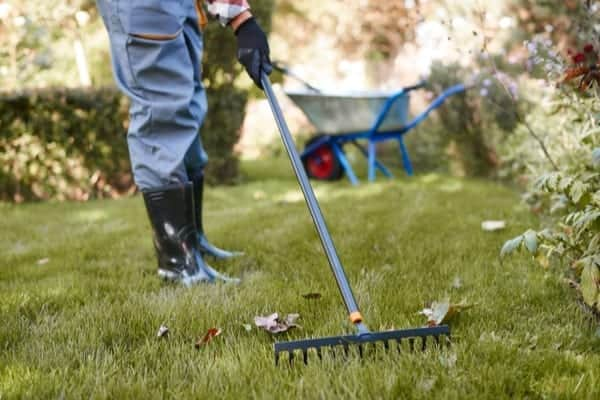10 garden laws you might not know you're breaking


While gardening might seem the most innocent of pursuits, there are a few factors which could land you on the wrong side of the law when it comes to your outdoor space.
From overhanging branches to fallen fruit, here are 10 ways your garden could be breaking the law without you knowing.
Overhanging branches


Advertisement
Hide AdAdvertisement
Hide AdIf a tree's branches overhang into your property from a neighbour's, you are permitted to trim them, but only up to the property line.
Leaning into a neighbour's garden to trim the trees is not permissible, as this constitutes trespass.
If a tree is covered by a Tree Preservation Order you can't cut the branches, so it is wise to check this first.
And if you want to plant a hedge in your garden, while you don’t normally require planning permission to do so, it's best to check with the local planning authority first, as you will be responsible for maintaining it, so that is doesn’t cause a nuisance to others.


Fruit and flowers
Advertisement
Hide AdAdvertisement
Hide AdWhile cutting branches which overhang into your garden up to the property line is allowed, they do still belong to the neighbour - as do any fruit or flowers on them.
As such, your neighbour is legally entitled to demand them back.
But do not just throw any windfallen fruit and flowers back into their garden, as this could constitute garden waste fly tipping.


Boundary fences
If you want to put up a new fence, gate or garden wall which is more than two metres in height you will need planning permission to do so.
Advertisement
Hide AdAdvertisement
Hide AdIf the fence or wall borders or adjoins a public highway used for vehicles, you may need planning permission if it’s higher than one metre.
You will also need to seek permission if your property is a listed building, or if the proposed fence forms a boundary with a neighbour’s listed building.
It is also wise to check the property deeds to ensure you aren’t breaching any existing agreement between your property and those neighbouring it, or check the Land Registry for general boundary guidelines.
If a fence already exists the house deeds should indicate who is responsible for boundaries, although there is no legal responsibility to keep boundaries well maintained, unless the deeds state otherwise.
Sweeping fallen leaves
Advertisement
Hide AdAdvertisement
Hide AdTree owners are not responsible for sweeping up any fallen leaves that might land on your property - that burden falls to you.
(Photo: Shutterstock)
Garden sheds
Installing a garden shed, log cabin or summerhouse in your garden requires certain planning criteria to be met, with the building required to have a height no more than 2.5 metres from existing ground level, a maximum overall height of 4 metres with a dual-pitched roof, or 3 metres for any other roof.
In terms of space, the ground area covered by the outbuilding and any other buildings within the boundary of the property (excluding the original house) should not be more than half the total area of the property.
Hot tubs
If you’re lucky enough to have your own outdoor hot tub, you should be mindful that heating the tub could actually constitute a nuisance due to noise.
Advertisement
Hide AdAdvertisement
Hide AdIf you’re installing a hot tub in an outbuilding, then the same rules for outbuildings (above) will apply.
Trees blocking light
Under the Rights of Light Act, if a window has received natural light for 20 years or more, neighbours cannot legally block it with a new tree.
Boundary hedges
If a hedge grows along the boundary between two gardens, both neighbours are responsible for trimming.
If a hedge belonging to a neighbour grows into your garden, you are permitted to trim it but, as with tree branches, you must - technically - return the trimmings to the owner.
Washing lines
Advertisement
Hide AdAdvertisement
Hide AdShould you intend to attach a washing line, garden hose or even hanging baskets to your neighbour’s outside wall or fence, be sure to obtain their consent before doing so.
Garden bonfires
While there is no law against a garden bonfire, the rules state that you can't burn any household waste that "will cause pollution or harm people’s health".
Equally, you could be fined if you light a fire and you allow the smoke to drift across the road and become a danger to traffic.
And if you have regular garden bonfires, they can be deemed a nuisance to neighbours.